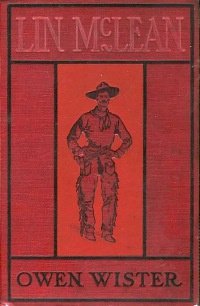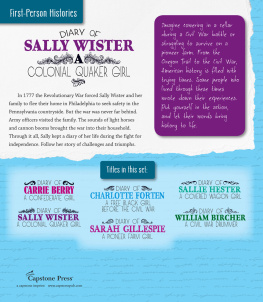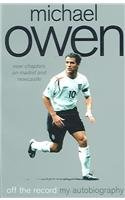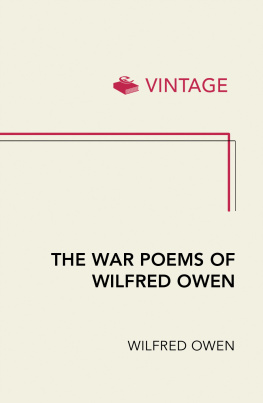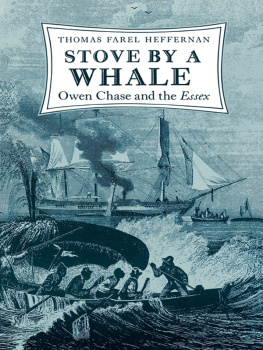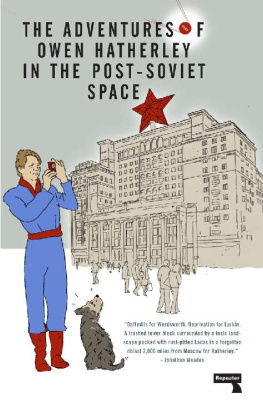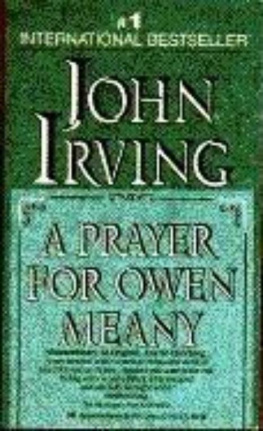Owen Wister - The Virginian
Here you can read online Owen Wister - The Virginian full text of the book (entire story) in english for free. Download pdf and epub, get meaning, cover and reviews about this ebook. genre: Adventure. Description of the work, (preface) as well as reviews are available. Best literature library LitArk.com created for fans of good reading and offers a wide selection of genres:
Romance novel
Science fiction
Adventure
Detective
Science
History
Home and family
Prose
Art
Politics
Computer
Non-fiction
Religion
Business
Children
Humor
Choose a favorite category and find really read worthwhile books. Enjoy immersion in the world of imagination, feel the emotions of the characters or learn something new for yourself, make an fascinating discovery.

- Book:The Virginian
- Author:
- Genre:
- Rating:3 / 5
- Favourites:Add to favourites
- Your mark:
- 60
- 1
- 2
- 3
- 4
- 5
The Virginian: summary, description and annotation
We offer to read an annotation, description, summary or preface (depends on what the author of the book "The Virginian" wrote himself). If you haven't found the necessary information about the book — write in the comments, we will try to find it.
The Virginian — read online for free the complete book (whole text) full work
Below is the text of the book, divided by pages. System saving the place of the last page read, allows you to conveniently read the book "The Virginian" online for free, without having to search again every time where you left off. Put a bookmark, and you can go to the page where you finished reading at any time.
Font size:
Interval:
Bookmark:
Owen Wister
The Virginian
A Horseman Of The Plains
To THEODORE ROOSEVELT
Some of these pages you have seen, some you have praised, one stands new-written because you blamed it; and all, my dear critic, beg leave to remind you of their author's changeless admiration.
TO THE READER
Certain of the newspapers, when this book was first announced, made a mistake most natural upon seeing the sub-title as it then stood, A TALE OF SUNDRY ADVENTURES. "This sounds like a historical novel," said one of them, meaning (I take it) a colonial romance. As it now stands, the title will scarce lead to such interpretation; yet none the less is this book historical quite as much so as any colonial romance. Indeed, when you look at the root of the matter, it is a colonial romance. For Wyoming between 1874 and 1890 was a colony as wild as was Virginia one hundred years earlier. As wild, with a scantier population, and the same primitive joys and dangers. There were, to be sure, not so many Chippendale settees.
We know quite well the common understanding of the term "historical novel." HUGH WYNNE exactly fits it. But SILAS LAPHAM is a novel as perfectly historical as is Hugh Wynne, for it pictures an era and personifies a type. It matters not that in the one we find George Washington and in the other none save imaginary figures; else THE SCARLET LETTER were not historical. Nor does it matter that Dr. Mitchell did not live in the time of which he wrote, while Mr. Howells saw many Silas Laphams with his own eyes; else UNCLE TOM'S CABIN were not historical. Any narrative which presents faithfully a day and a generation is of necessity historical; and this one presents Wyoming between 1874 and 1890. Had you left New York or San Francisco at ten o'clock this morning, by noon the day after to-morrow you could step out at Cheyenne. There you would stand at the heart of the world that is the subject of my picture, yet you would look around you in vain for the reality. It is a vanished world. No journeys, save those which memory can take, will bring you to it now. The mountains are there, far and shining, and the sunlight, and the infinite earth, and the air that seems forever the true fountain of youth, but where is the buffalo, and the wild antelope, and where the horseman with his pasturing thousands? So like its old self does the sage-brush seem when revisited, that you wait for the horseman to appear.
But he will never come again. He rides in his historic yesterday. You will no more see him gallop out of the unchanging silence than you will see Columbus on the unchanging sea come sailing from Palos with his caravels.
And yet the horseman is still so near our day that in some chapters of this book, which were published separate at the close of the nineteenth century, the present tense was used. It is true no longer. In those chapters it has been changed, and verbs like "is" and "have" now read "was" and "had." Time has flowed faster than my ink.
What is become of the horseman, the cowpuncher, the last romantic figure upon our soil? For he was romantic. Whatever he did, he did with his might. The bread that he earned was earned hard, the wages that he squandered were squandered hard, half a year's pay sometimes gone in a night, "blown in," as he expressed it, or "blowed in," to be perfectly accurate. Well, he will be here among us always, invisible, waiting his chance to live and play as he would like. His wild kind has been among us always, since the beginning: a young man with his temptations, a hero without wings.
The cow-puncher's ungoverned hours did not unman him. If he gave his word, he kept it; Wall Street would have found him behind the times. Nor did he talk lewdly to women; Newport would have thought him old-fashioned. He and his brief epoch make a complete picture, for in themselves they were as complete as the pioneers of the land or the explorers of the sea. A transition has followed the horseman of the plains; a shapeless state, a condition of men and manners as unlovely as is that moment in the year when winter is gone and spring not come, and the face of Nature is ugly. I shall not dwell upon it here. Those who have seen it know well what I mean. Such transition was inevitable. Let us give thanks that it is but a transition, and not a finality.
Sometimes readers inquire, Did I know the Virginian? As well, I hope, as a father should know his son. And sometimes it is asked, Was such and such a thing true? Now to this I have the best answer in the world. Once a cowpuncher listened patiently while I read him a manuscript. It concerned an event upon an Indian reservation. "Was that the Crow reservation?" he inquired at the finish. I told him that it was no real reservation and no real event; and his face expressed displeasure. "Why," he demanded, "do you waste your time writing what never happened, when you know so many things that did happen?"
And I could no more help telling him that this was the highest compliment ever paid me than I have been able to help telling you about it here!
CHARLESTON, S.C., March 31st, 1902
THE VIRGINIAN
I. ENTER THE MAN
Some notable sight was drawing the passengers, both men and women, to the window; and therefore I rose and crossed the car to see what it was. I saw near the track an enclosure, and round it some laughing men, and inside it some whirling dust, and amid the dust some horses, plunging, huddling, and dodging. They were cow ponies in a corral, and one of them would not be caught, no matter who threw the rope. We had plenty of time to watch this sport, for our train had stopped that the engine might take water at the tank before it pulled us up beside the station platform of Medicine Bow. We were also six hours late, and starving for entertainment. The pony in the corral was wise, and rapid of limb. Have you seen a skilful boxer watch his antagonist with a quiet, incessant eye? Such an eye as this did the pony keep upon whatever man took the rope. The man might pretend to look at the weather, which was fine; or he might affect earnest conversation with a bystander: it was bootless. The pony saw through it. No feint hoodwinked him. This animal was thoroughly a man of the world. His undistracted eye stayed fixed upon the dissembling foe, and the gravity of his horse-expression made the matter one of high comedy. Then the rope would sail out at him, but he was already elsewhere; and if horses laugh, gayety must have abounded in that corral. Sometimes the pony took a turn alone; next he had slid in a flash among his brothers, and the whole of them like a school of playful fish whipped round the corral, kicking up the fine dust, and (I take it) roaring with laughter. Through the window-glass of our Pullman the thud of their mischievous hoofs reached us, and the strong, humorous curses of the cow-boys. Then for the first time I noticed a man who sat on the high gate of the corral, looking on. For he now climbed down with the undulations of a tiger, smooth and easy, as if his muscles flowed beneath his skin. The others had all visibly whirled the rope, some of them even shoulder high. I did not see his arm lift or move. He appeared to hold the rope down low, by his leg. But like a sudden snake I saw the noose go out its length and fall true; and the thing was done. As the captured pony walked in with a sweet, church-door expression, our train moved slowly on to the station, and a passenger remarked, "That man knows his business."
But the passenger's dissertation upon roping I was obliged to lose, for Medicine Bow was my station. I bade my fellow-travellers good-by, and descended, a stranger, into the great cattle land. And here in less than ten minutes I learned news which made me feel a stranger indeed.
Font size:
Interval:
Bookmark:
Similar books «The Virginian»
Look at similar books to The Virginian. We have selected literature similar in name and meaning in the hope of providing readers with more options to find new, interesting, not yet read works.
Discussion, reviews of the book The Virginian and just readers' own opinions. Leave your comments, write what you think about the work, its meaning or the main characters. Specify what exactly you liked and what you didn't like, and why you think so.

